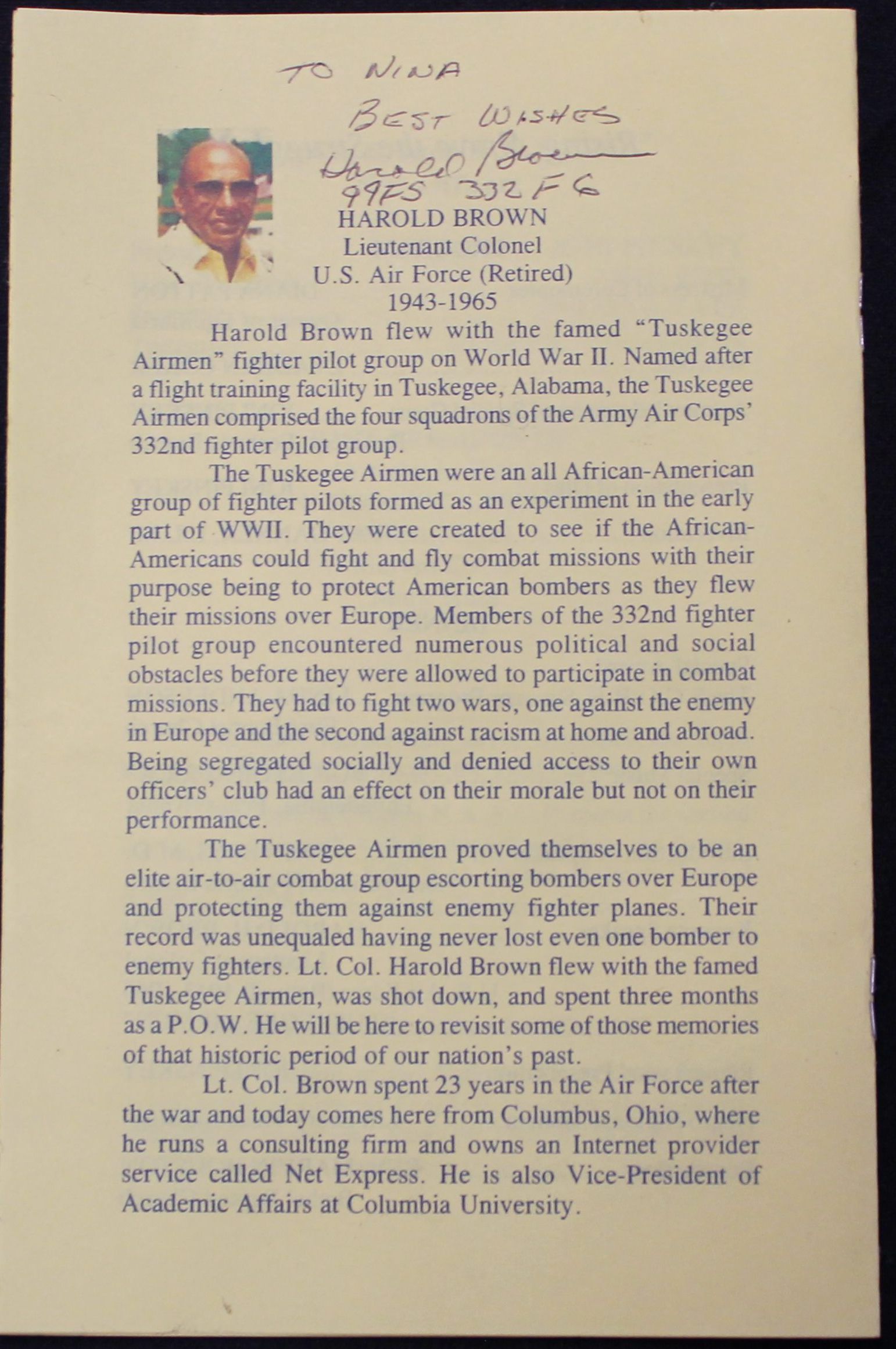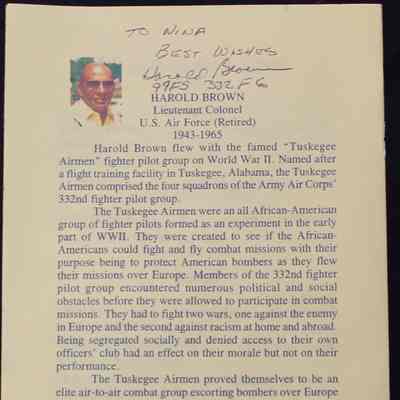Harold Brown Lt. Col. 1943-1965

Front view of text
The text reads: TO NINA BEST WISHES Darald Blown 99FS 332 FG HAROLD BROWN Lieutenant Colonel U.S. Air Force (Retired) 1943-1965 Harold Brown flew with the famed "Tuskegee Airmen" fighter pilot group on World War II. Named after a flight training facility in Tuskegee, Alabama, the Tuskegee Airmen comprised the four squadrons of the Army Air Corps' 332nd fighter pilot group. The Tuskegee Airmen were an all African-American group of fighter pilots formed as an experiment in the early part of WWII. They were created to see if the African- Americans could fight and fly combat missions with their purpose being to protect American bombers as they flew their missions over Europe. Members of the 332nd fighter pilot group encountered numerous political and social obstacles before they were allowed to participate in combat missions. They had to fight two wars, one against the enemy in Europe and the second against racism at home and abroad. Being segregated socially and denied access to their own officers' club had an effect on their morale but not on their performance. The Tuskegee Airmen proved themselves to be an elite air-to-air combat group escorting bombers over Europe and protecting them against enemy fighter planes. Their record was unequaled having never lost even one bomber to enemy fighters. Lt. Col. Harold Brown flew with the famed Tuskegee Airmen, was shot down, and spent three months as a P.O.W. He will be here to revisit some of those memories of that historic period of our nation's past. Lt. Col. Brown spent 23 years in the Air Force after the war and today comes here from Columbus, Ohio, where he runs a consulting firm and owns an Internet provider service called Net Express. He is also Vice-President of Academic Affairs at Columbia University.
